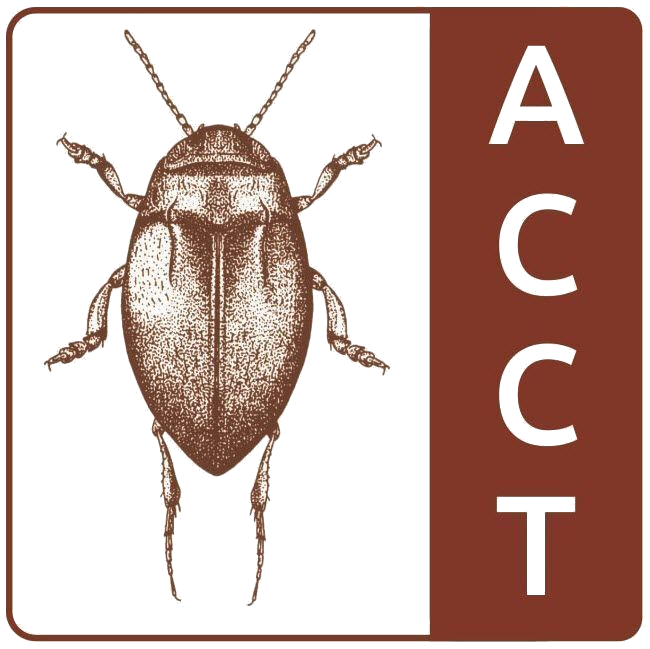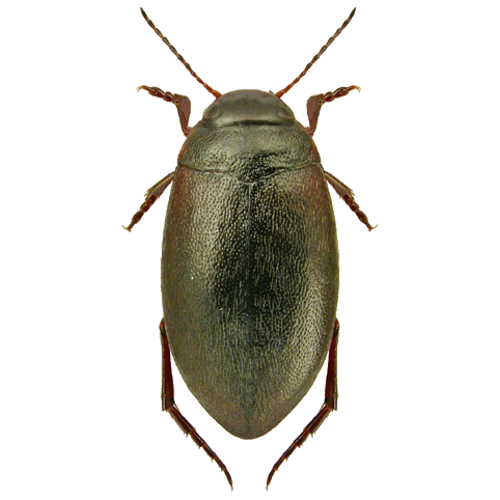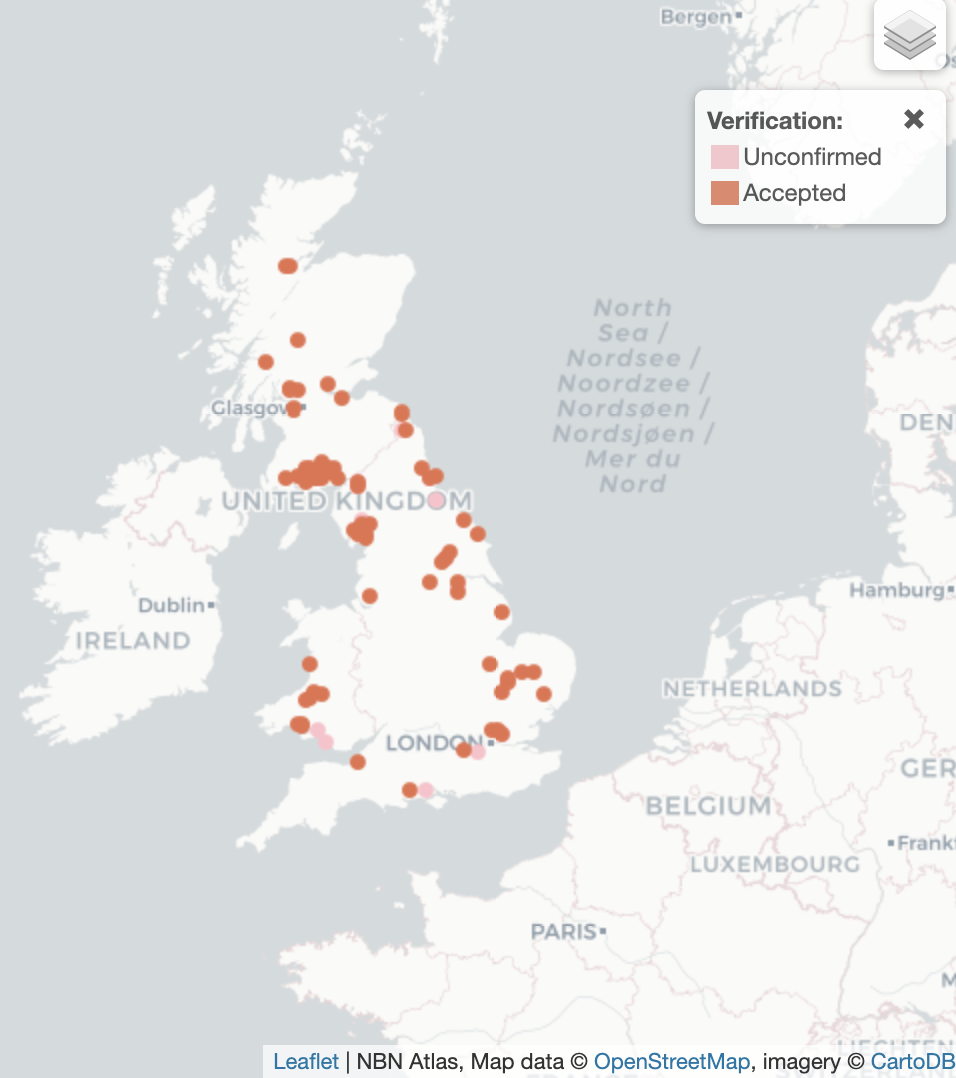Hydroporus rufifrons
(O.F. Müller, 1776)
Oxbow Diving Beetle

Aquatic Coleoptera
Conservation Trust
OVERVIEW

Hydroporus rufifrons, commonly known as the "Oxbow Diving Beetle," is a specialist species adapted to the unique environments of oxbow lakes and floodplain pools. This diving beetle represents an important indicator of healthy river floodplain systems and is found across England and Scotland in areas where natural river meandering and flooding patterns are maintained.
CONSERVATION STATUS
Key Threats:
- River channelisation and flood defence works
- Loss of natural floodplain connectivity
- Water pollution and eutrophication
- Climate change affecting flood patterns
- Agricultural intensification in floodplains
Population Trend:
DISTRIBUTION

Current Range: Found in England and Scotland with scattered distribution, most frequently recorded from river systems that retain natural floodplain connectivity and meandering patterns.
Habitat Distribution: Specialised in oxbow lakes, slow-flowing river backwaters, and floodplain pools connected to main river channels, requiring periodic flooding and natural hydrological cycles.
ECOLOGY & HABITAT
Oxbow Lakes
Abandoned river meanders forming isolated water bodies
River Backwaters
Slow-flowing side channels and quiet bays
Floodplain Pools
Temporary and permanent pools in river floodplains
Life Cycle: Complete metamorphosis adapted to floodplain hydrology with ability to survive periodic drying
Diet: Predatory, feeding on small invertebrates, larvae, and organic detritus in slow-water environments
Flood Adaptation: Tolerates fluctuating water levels and can colonize newly flooded areas during high water events
CONSERVATION ACTIONS
Floodplain Restoration
Restore natural river meanders and floodplain connectivity
Oxbow Management
Maintain oxbow lakes and prevent excessive succession
Water Quality
Reduce agricultural pollution in river catchments
Natural Flooding
Allow periodic natural flooding to maintain habitats